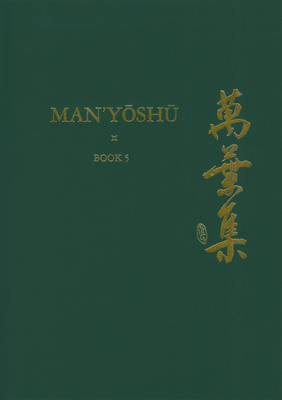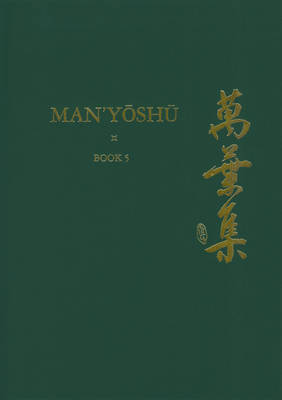
- Afhalen na 1 uur in een winkel met voorraad
- Gratis thuislevering in België vanaf € 30
- Ruim aanbod met 7 miljoen producten
- Afhalen na 1 uur in een winkel met voorraad
- Gratis thuislevering in België vanaf € 30
- Ruim aanbod met 7 miljoen producten
Zoeken
Man'yōshū (Book 5)
A New Translation Containing the Original Text, Kana Transliteration, Romanization, Glossing and Commentary
€ 198,45
+ 396 punten
Omschrijving
This is the second volume to be published in the 20-volume set. It includes 114 poems (104 tanka, ten choka), traditionally considered to be the zoka genre, although some of them can be classified as benka, since they deal with death and sorrow. It also contains two poems in Chinese. The volume has several long introductions (all written in Chinese) to the poems that follow. All the poems in this volume were composed between AD 724 and 733, which represents a much greater homogeneity in comparison to books one to four. Most of the poems were written by Yamanoue-no Okura (AD660-733), one of the greatest Man'yōshū poets, who was possibly a Korean from Kudara (Paekche), or at least a descendant of Kudara immigrants to Japan. The spelling system in this volume is predominantly phonographic, with only a few exceptions. In addition, the spelling system appears to reflect Early Western Old Japanese, as demonstrated by Bentley (1997, 2002). The same can be said about its overall grammatical features.
Specificaties
Betrokkenen
- Vertaler(s):
- Uitgeverij:
Inhoud
- Aantal bladzijden:
- 195
- Taal:
- Engels
- Reeks:
- Reeksnummer:
- nr. 5
Eigenschappen
- Productcode (EAN):
- 9781906876203
- Verschijningsdatum:
- 25/01/2011
- Uitvoering:
- Hardcover
- Formaat:
- Genaaid
- Afmetingen:
- 157 mm x 239 mm
- Gewicht:
- 335 g

Alleen bij Standaard Boekhandel
+ 396 punten op je klantenkaart van Standaard Boekhandel
Beoordelingen
We publiceren alleen reviews die voldoen aan de voorwaarden voor reviews. Bekijk onze voorwaarden voor reviews.






